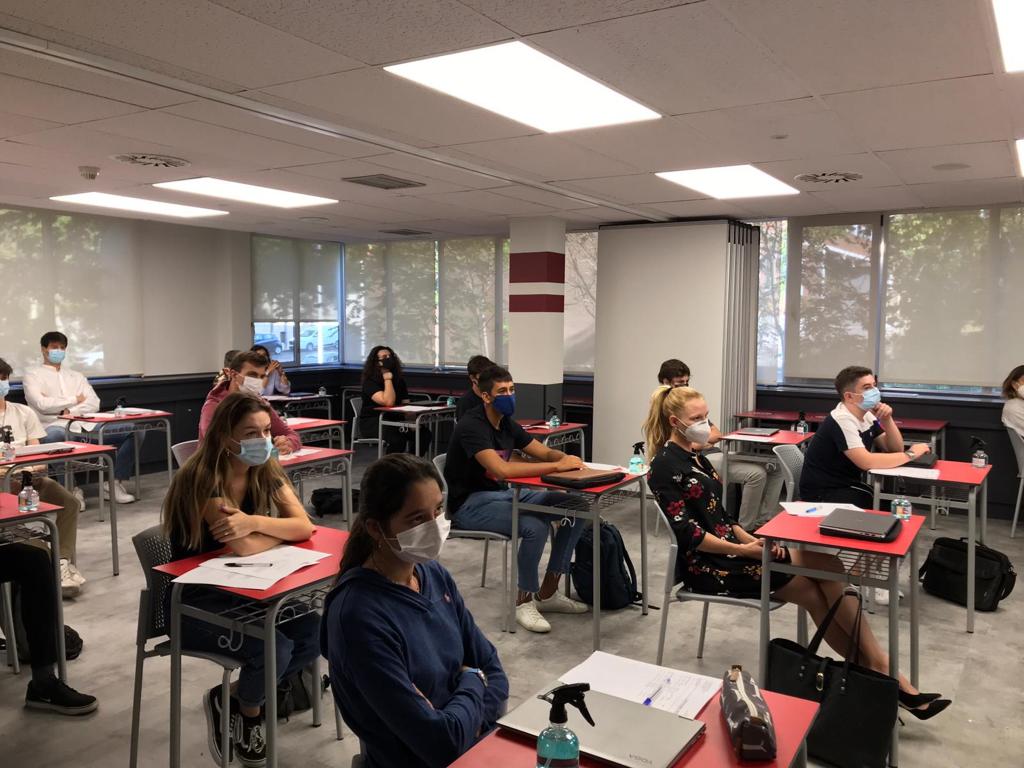If you are a student you may have not heard about what is the difference between Associate degree and Bachelor degree. The truth is that deciding whether to go to college for an associate degree versus a bachelor’s degree can be a difficult decision. The degree program you choose should align with your personal, professional, and financial goals for the future. We’ll clear all your doubts here so read on.
What is an Associate’s Degree
An associate’s degree is normally earned at a community college and it takes two years to have it. It usually focuses on general education requirements that later can be used towards completing a bachelor’s degree after two more years of study. Some associate programs are also geared towards a specific profession such as business administration.
What is a Bachelor’s Degree
While a person can use an associate’s degree towards a bachelor’s degree, most students enroll straight into the bachelor’s degree program. Programs can be found in every field of interest. These four-year programs provide the foundation required for attaining the majority of jobs in any part of the world. Two years of the program are spent on a broad general education covering subjects commonly seen in high school: mathematics, English, sciences, history, and languages. Traditionally, students spend between 15-18 hours per week in the classroom. It takes longer, but if you compare it with all your professional life and future, it’s a better choice.
What is the difference between Associate degree and Bachelor degree?
These are the top five differences between the two degrees to consider as you contemplate your options.
-
Time
The basic difference is the amount of time it takes to earn the degree. A full-time student can earn an associate’s degree in two years or a bachelor’s degree in four years. Part-time students take longer to earn each degree, but generally, an associate’s degree will be faster to get than a bachelor’s degree.
-
Tuition
The exact cost per credit will vary from school to school, but generally, an associate’s degree will be less expensive than a bachelor’s degree. This is largely due to a shorter time investment.
Due to the earning potential that comes with a bachelor’s degree—as well as the many jobs that now require a bachelor’s degree—program cost alone should not be a deterrent if you are considering a bachelor’s degree.
-
Program focus
There are two types of associate degree programs, each with a different focus:
- Specialized technical or vocational coursework. This works well if you want to learn a particular set of skills or want to train for a certain job title.
- General studies approach that does not focus on a particular job, set of skills, or declared major. This works well if you want to earn college credit that can later be applied to a bachelor’s degree.
Most bachelor’s degree programs require that you choose a major and complete a final project. But before you get to coursework in your major, you’ll need to complete about two years of general education. (That’s where an associate’s degree can come in handy.) Bachelor’s programs also allow you to explore elective studies, which can be formed into a minor that complements your major.
-
Career path
If you want to begin your career quickly in a technical or skilled-labor industry, an associate’s degree is all you need to get started. Jobs you can get with an associate’s degree include dental assistant, licensed practical nurse (LPN), cosmetologist, computer programmer, and more.
While there are many careers that only require an associate’s degree, you may be competing for jobs with candidates who have bachelor’s degrees. Generally speaking, an applicant with a bachelor’s degree may be thought of as more qualified or more attractive to employers.
Fields like accounting, finance, and business management often require a bachelor’s degree at a minimum. These jobs typically offer more opportunities for career advancement and promotion. Depending on the position, some companies don’t care what your particular area of study was; just having a four-year degree meets their requirement. Of course, seeking a career related to your major has its advantages.
A bachelor’s degree is a must if you’re interested in a career that requires graduate study. You’ll need to have your bachelor’s degree to apply for master’s- or doctoral-level programs.
While an associate degree may be enough for an entry-level position, advancing within a career path may require additional education. Becoming a police detective or supervisor could require a bachelor’s degree in criminal justice or police administration, for example, while taking a job in cybersecurity or another specialized field of information technology could call for a bachelor’s degree in computer science.
-
Unemployment rates and earning potential
According to the Bureau of Labor Statistics, people who have a bachelor’s degree earn more and are less likely to be unemployed than those with an associate’s degree.
Students with a bachelor’s degree earn about 40 % more per year than those with an associate degree. This difference in long-term earning potential is often enough to make up for the cost associated with earning a bachelor’s degree, as the average graduate will earn enough to offset the cost of college in a few years.
Unemployment rates for workers with an associate degree were 3.4% in 2017, compared to just 2.5% for workers with a bachelor’s degree, according to BLS data.
If still not decided
In this competitive hiring environment, many workers are finding that it pays – literally – to advance from an associate degree to a bachelor’s degree. Workers with at least a bachelor’s degree experience lower levels of unemployment and have higher weekly earnings than those with an associate degree. Although it may seem a bit more difficult to earn it, definitely the bachelor’s degree is worth more.
To conclude
Today’s job market is complex and competitive. Your education is the first major decision that just may impact your success for decades to come. Just know that it’s a choice that should be made intentionally based on the future you want for yourself. Based on that and on the main differences between these two programs, make your choice and go for it!


